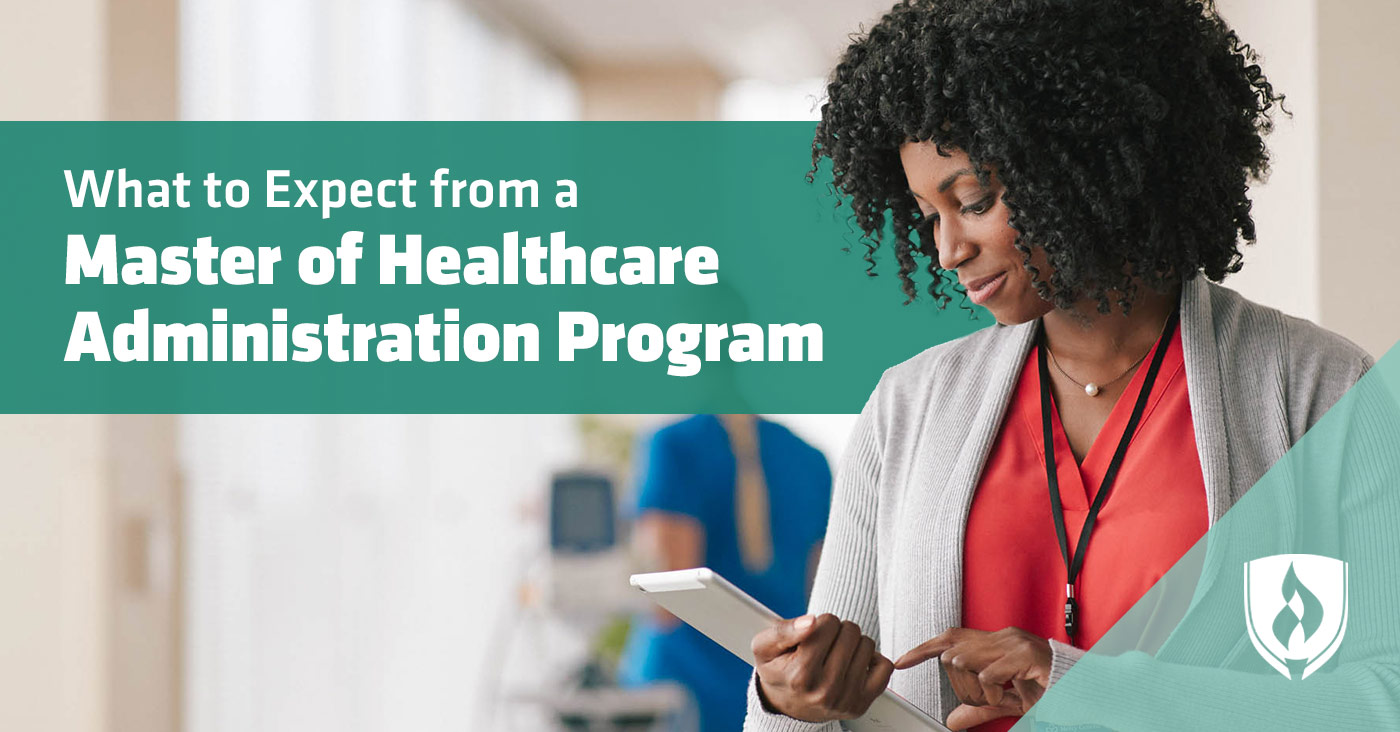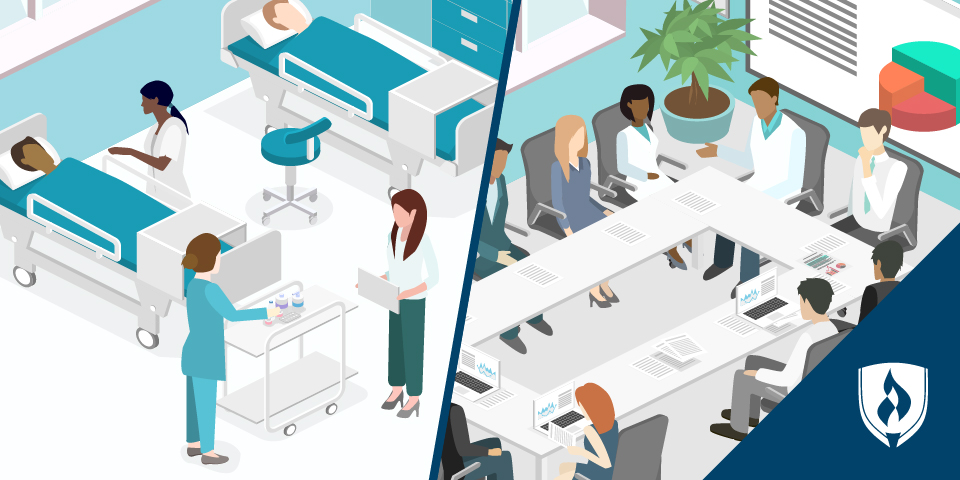What to Expect from a Master of Healthcare Administration Program
By Jess Scherman on 12/17/2018

Amidst today’s continuously evolving educational and professional landscapes, the Master’s degree has become the fastest-growing college credential in America. In fact, the number of adults with a graduate-level education grew 43 percent from 2002 to 2015, totaling about 16 million people nationwide.
The job market for almost every industry has become saturated with qualified Bachelor’s-degree candidates. In the wake of these shifting trends, Master’s degrees are becoming the new gold standard for those hoping to stand out in a competitive job search or climb the ladder within a current organization.
Whether you’re already working in healthcare or you simply see the potential in transitioning to a leadership position within the industry that represents America’s largest employer, you’re now wondering if a Master’s degree in Healthcare Administration (MHA) could be the vehicle that drives you further toward your ultimate career goals.
But it makes sense that the commitment to advance your education is one you want to be certain about before jumping in. That’s why we’ve compiled the answers to some commonly asked questions about pursuing an MHA. Also check out healthcare administration skills you need.
4 Common questions to consider about Master of Healthcare Administration programs
While it’s true that no two academic programs are the same, most programs have specific accreditation standards and competency models that corresponding education programs must follow. MHA programs are no exception. Consider these four pivotal questions as you explore whether or not a graduate degree in Healthcare Administration is right for you.
1. What are the basic MHA program requirements?
When it comes to gaining admission to an MHA program, there’s quite a bit of variability between schools. No matter where you plan to attend, you will need at least a Bachelor’s degree—but schools have a lot of latitude in what they can require of applicants. At Rasmussen College, applicants must have obtained a Bachelor’s degree from an accredited institution with a GPA of 3.0 or higher.
Another requirement you’ll want to consider is whether you’ll be taking courses online or in an on-campus setting. Both formats can be appealing, but online options may offer more flexibility for working professionals.
The Rasmussen College MHA program is offered in a streamlined online competency-based education format. This means that students have greater control over the pace of their learning, which allows them to show what they know as soon as they know it, so they can swiftly move onto the next subject or course. Offered fully online, busy adult learners like you are empowered to take charge of their own learning, incorporating the balance and flexibility that will fit best with their varying lifestyle needs.
2. What is an MHA curriculum like?
As you seek to determine whether an MHA is right for your career aspirations, you’ll want to be sure you’re evaluating potential programs that are not only properly accredited, but that also boast a curriculum that’s aligned with industry standards. The Rasmussen College MHA program, for example, was designed by faculty members in tandem with external subject-matter experts and curriculum specialists to academically align with the National Center for Healthcare Leadership (NCHL) Healthcare Leadership Competency Model.
In most MHA programs, students will learn about interdisciplinary factors required of leaders to develop and manage an effective healthcare environment from industry-experienced faculty. In an MHA program, students can expect courses covering the following:
- Healthcare Leadership and Human Resources
- Healthcare Operations Management
- Healthcare Strategic Planning and Marketing
- Healthcare Information Systems and Technology
- Healthcare Financial Management and Economics
- Population Health
- Healthcare Policy, Ethics and Laws
3. What will I learn in an MHA program?
The MHA program curriculum is designed with some specific learning objectives in mind. In qualifying professionals to become effective healthcare leaders, the MHA program at Rasmussen College aims to teach students to develop strategic plans for organizational change, taking elements like socioeconomics, market forces and current trends into account.
Graduates will also learn to evaluate the impacts of financial information, healthcare technology systems and operational processes on patient care and business outcomes. Maintaining a firm handle on the business of healthcare, MHA-qualified professionals learn to greatly value innovation, diverse perspectives, technology and information literacy, population health management and communication.
4. How can an MHA impact my career?
Finally, you’re likely wondering about the potential effect an MHA has on your career trajectory. MHA-qualified graduates face a host of new career opportunities. Potential outcomes include:
- Hospital administrator
- Clinical director
- Health services manager
- Practice manager
While the earning potential and career outlook will be unique for each job title, it can be helpful to note that the Bureau of Labor Statistics projects a 20 percent increase in medical and health services manager employment through 2026.*
But the impact of earning an MHA isn’t just having the potential to take on leadership roles in healthcare. Earning an MHA builds graduates’ proficiency in critical skills like financial management, digital fluency, ethical leadership, strategic planning, operations management, organizational change and more.
Unlock your professional potential with a Master’s of Healthcare Administration
MHA programs like the one at Rasmussen College offer students a robust and comprehensive healthcare administration learning experience within an innovative environment that prepares graduates to become successful healthcare leaders. Are you ready to take the next step toward your career as a leader in healthcare?
If you’re curious to learn more about the diverse, practitioner-based learning experiences, cutting-edge competency-based curriculum and specialized healthcare focus areas offered within this innovative program, head over to the Rasmussen College Master of Healthcare Administration page.
*Bureau of Labor Statistics, U.S. Department of Labor, Occupational Outlook Handbook, [information accessed November 16, 2018] www.bls.gov/ooh/. Employment conditions in your area may vary.




